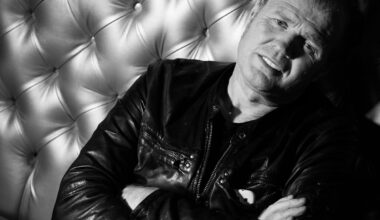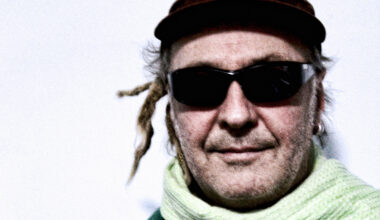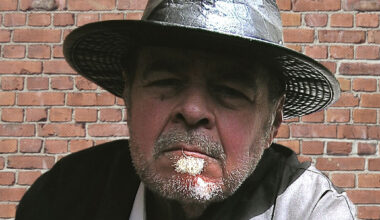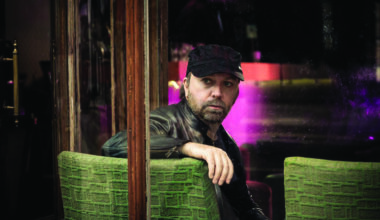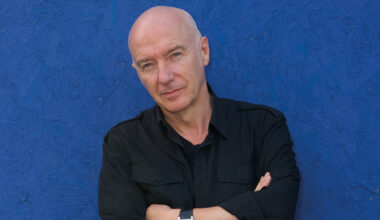Robin Guthrie blazed trails as one third of the truly unique Cocteau Twins. Now he blows the doors off our regular feature where all he has to talk about are his influences. Still, what did we expect from a man whose music has always defied description?
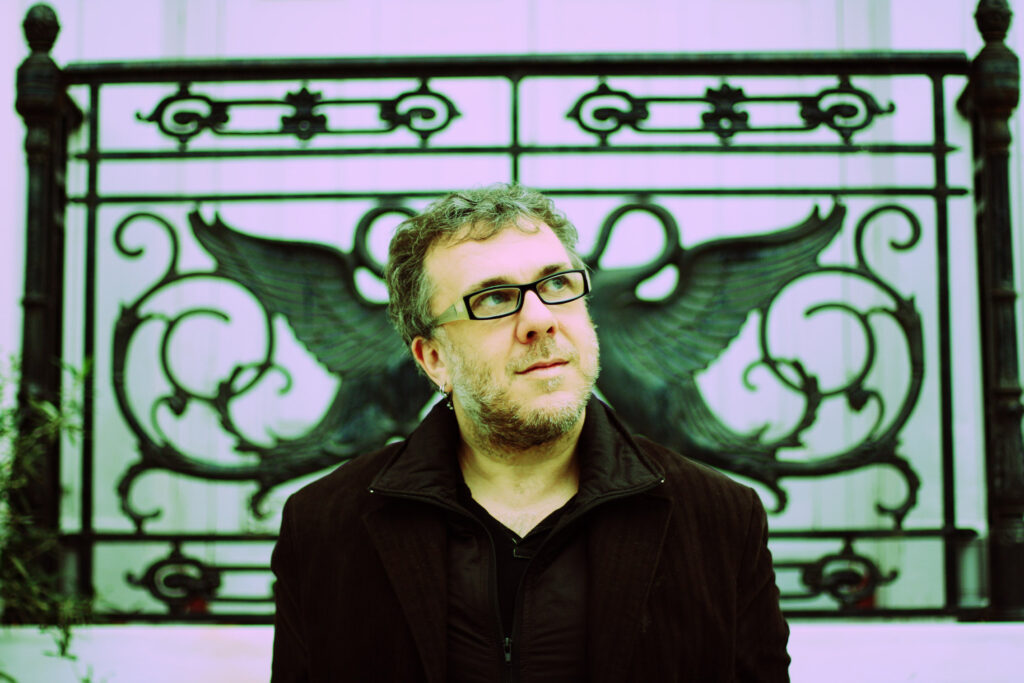
SETTINGS
I’ve always recorded a lot of the Cocteau Twins’ music in different places and then gone back to my home base to work on it. It’s so easy to do that now. I recently worked with a band in Peru and then used a thumb drive to bring home the recordings to finish them. Some of ‘Milk And Kisses’ [the Cocteaus’ 1996 album] was recorded sitting by my window with a view of the Atlantic Ocean in Brittany, which is where I live. I once wrote music while crossing the US by rail. I wrote all the music on the train and then performed it when we arrived on the West Coast 10 days later.
I often go off and create my own little mobile studio somewhere for a week or so because I get really inspired by moving about and doing things in different places. I’ve been working with the Australian band Heligoland in a lighthouse in France. I made my ‘Sunflower Stories’ EP sitting in a field full of sunflowers. I try to keep my life interesting and not worry about music or being a pop star. I leave that to the youngsters.
MUSIC
I started listening to music in the 1970s, essentially pop groups like T-Rex and Roxy Music. I was never into rock music like Pink Floyd. I didn’t have long hair or a big stack of Genesis albums. My older brother did and that was probably the reason I hated all that. I was much more into the Phil Spector sound. I liked huge pop records – The Ronettes, The Shangri-Las – and I went through a phase of listening to Motown. I didn’t have the means to reproduce that sound completely because I didn’t have live musicians and orchestras, but I did have effects pedals to make a big sound with where that mixture came from.
Then punk rock and post-punk came along. I had a lot of respect for The Birthday Party in the 1980s. I admired them because they were making beautiful but noisy music. John Peel introduced them to me, by which I mean I first heard them sitting next to a wireless in Scotland. We had none of this internet or download stuff, just the wireless and the weekly music journals, NME and Melody Maker, which used to get to Scotland by the weekend. The Cocteaus didn’t feel particularly attached to those bands scene-wise, they were just the kind of things we were listening to – Nick Cave, Joy Division, edgy stuff like that. I can’t listen to more than about 10 seconds of it now without putting my fingers in my ears.
I tried to use that punk rock and post-punk energy alongside a big wall of sound. It was always going to be very restrictive and at first I didn’t make the records I envisioned. But it was very exciting when we got the opportunity to make a record with the grown-ups in a recording studio. For the first Cocteau Twins sessions, the guys just put the mikes against our amps and recorded it. By the second album, ‘Head Over Heels’ in 1983, I’d learned how to make the sound I wanted in the studio. For me, that was ground zero, although I always thought the record didn’t sound as good it did live.
EVERYTHING… AND NOTHING
Everything I’ve done from being a teenager to now has been a continuous line. I’ve never reinvented myself or followed a new fad. The music I make now seems a little more mature than when I was a teenager because that’s what the experience of life does to you – working, travelling, children – but there is no record, book, film, or particular person that’s been a standout influence on me where I can say, “I did this because they did that”.
Books mean more to me now because I’ve started to make a lot of instrumental music. But at the time of the Cocteau Twins, we weren’t directly taking influences and trying to reproduce them, and we were trying tokeep away from every type of new music. I hated how people would have a style and then change themselves a little bit for the next record, based on what was fashionable. I liked what we did and I figured we could do it our way, so we didn’t need to do that.
We were very much fans of 4AD Records and wanted to be on the label, although we’ve never been fans of all the bands on the roster. We came to London from Grangemouth in Scotland and took our cassette tape to the 4AD office. You cannot believe how young and confident we were. Liz was 17 and I was 19. Our contemporaries at 4AD were five or six years older than us and we saw them as grown-ups. It’s because you haven’t experienced failure. We were young and driven and very naive. How lucky we were that, just by chance, they listened to that tape and thought, “Wow, this is good”. I think I’d put the number of the telephone box down the road from my house on the tape.
The Cocteau Twins often get compared to bands from the shoegazing movement, but we were never part of that. I was really pushing the electronic idea, which was limited at the time. A lot of electronic processing didn’t exist back then, so it was literally, “What happens if we plug this thing into that thing?”. I was using equipment that wasn’t designed for what I was doing. I was using guitars as the input as opposed to using keyboards. And I wasn’t just happy to put my guitar through one effects pedal, I’d put it through loads of effects pedals. But I had this idea and I wanted to take it further and further. I very much grew up listening to records and getting ideas.In my diary entries, it’s clear this is how I wanted to see myself, sketching out how something was done on the fly, most of it in public view, not going away and hiding. I was learning on the job.
WORKING IN FILM
I’ve been doing music for films for a few years, which I like because then I become part of a story-telling team, making music that is functional as opposed to completely self-indulgent. I still feel like an outsider looking in, though. If I go to the Cannes Film Festival, then I just go home to Brittany. I don’t belong in that world at all, but that’s usually where and when I get to see the finished film. I like all sorts of movies, but I tend to get asked to work more with indie film-makers because my music is not so mainstream. My favourite soundtrack is one I made for a Spanish film with a Mexican director called ‘3:19’.
Reissues of the Cocteau Twins’ ‘The Pink Opaque’ album and ‘Tiny Dynamine’/‘Echoes In A Shallow Bay’ EPs are out on 4AD
